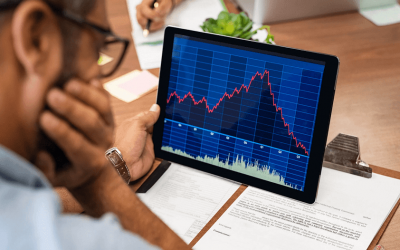
London Mayor Sadiq Khan says that millions of Britons won’t be able to afford heating or basic food this winter if things remain as they are now. The present state of affairs has no precedents in the past.
Price inflation in the UK appears to be over 10% for the first time since 1982. Household utility bills, not to mention industrial spending, are expected to rise steadily over the next two years unless the government provides financial support to the private and industrial sectors.
Article content
What is happening in the EU?
European gas prices at the leading European gas hub (TTF Holland) rose by almost 350% year-on-year, while futures contracts for electricity in Germany and France rose by 540% and 790%, respectively!
30-40% of Europe’s gas needs are households. About 80% of household gas demand is for heating, with the rest for hot water and cooking.
Typically, gas demand is higher during the winter gas season, which runs from October to March. But increased demand for gas is also observed this summer. People use energy for air conditioning. In the business sector, the heat wave also increased the energy volume needed to cool equipment.
And these are the July figures for Germany – the rise in prices for the following goods in the EU’s largest economy in July:
At the same time, half of Europeans blame their governments and energy companies, not Russia, for increasing energy prices — the Spanish Mundo writes, citing a survey conducted by Euroskopia. The study covers Austria, Germany, Greece, Spain, Italy, the Netherlands, Poland, Portugal, and France.
What is ahead for Europe?
It seems (most independent experts mention this scenario as a basic one) that difficult times are coming.
These difficult times come inevitably at the end of the overconsumption cycle. The gap between physical income and spending is growing. And the lack of gas from Russia is only a piece of the trouble. The problems began long before the sanctions. They became evident at the peak of COVID.
Are bonds a savior?
The overall situation is complicated because the stock market has been extremely volatile this year, and many people have seen negative results in their brokerage accounts. This point concerns mainly passive investors, treating shares as bank deposits.
Against this background, some long-term European investors tried to invest in a more stable, conservative asset — government bonds.

Pros and cons of bonds
Pros
- Satisfactory interest rates against the background of peak inflation.
- Low volatility and the ability to use bonds as a safe haven.
- The floating rates are natural within rising inflation (investors’ money flies into bonds from stocks). During a period of low inflation, bonds are of no interest to anyone as they don’t generate high profits.
Cons
- Bonds are long-term investments. You cannot pay off bonds until you hold them for a certain period.
At the rising inflation time, bonds might look attractive for long-term investing compared to bank deposits. But, of course, this is not an asset that can generate big profits. It’s just about hiding money from the Inflation Monster.
Do you want to invest and earn more than any bonds could bring?
And it doesn’t matter where you are. If you are interested in investments and trading, depending solely on your desire and strategy, feel free to open an account with an international broker.
Subscribe to our Telegram channel and find investment tips and ready-made ideas from our experts. You can use the suggested entry and exit points to make a profit. Following the insights of experienced traders can be a good way to learn if you’re a novice trader!
Moreover, you can hone your trading skills on a Demo account with zero investments! Or you can open a Live Account, starting at $100!







